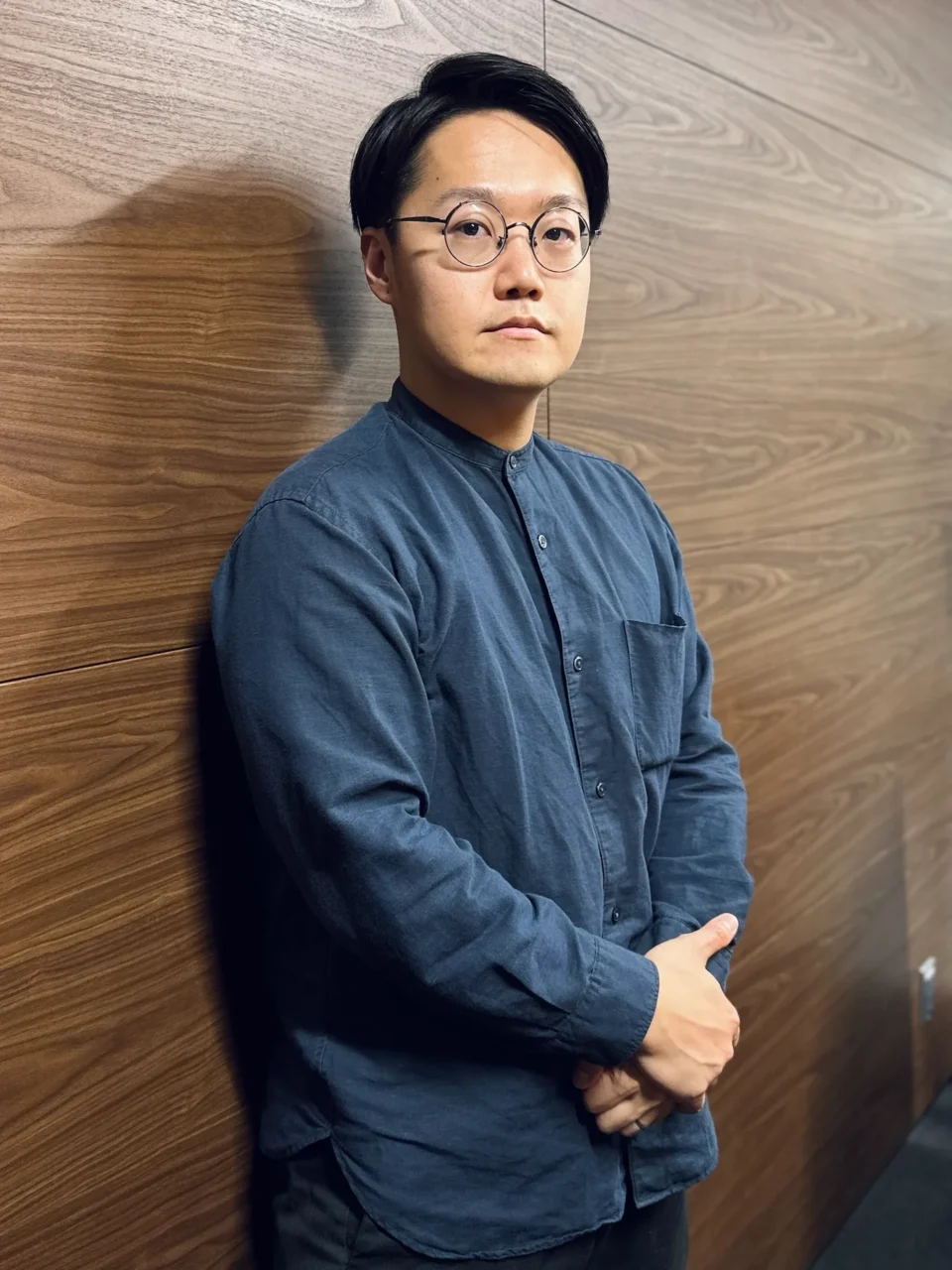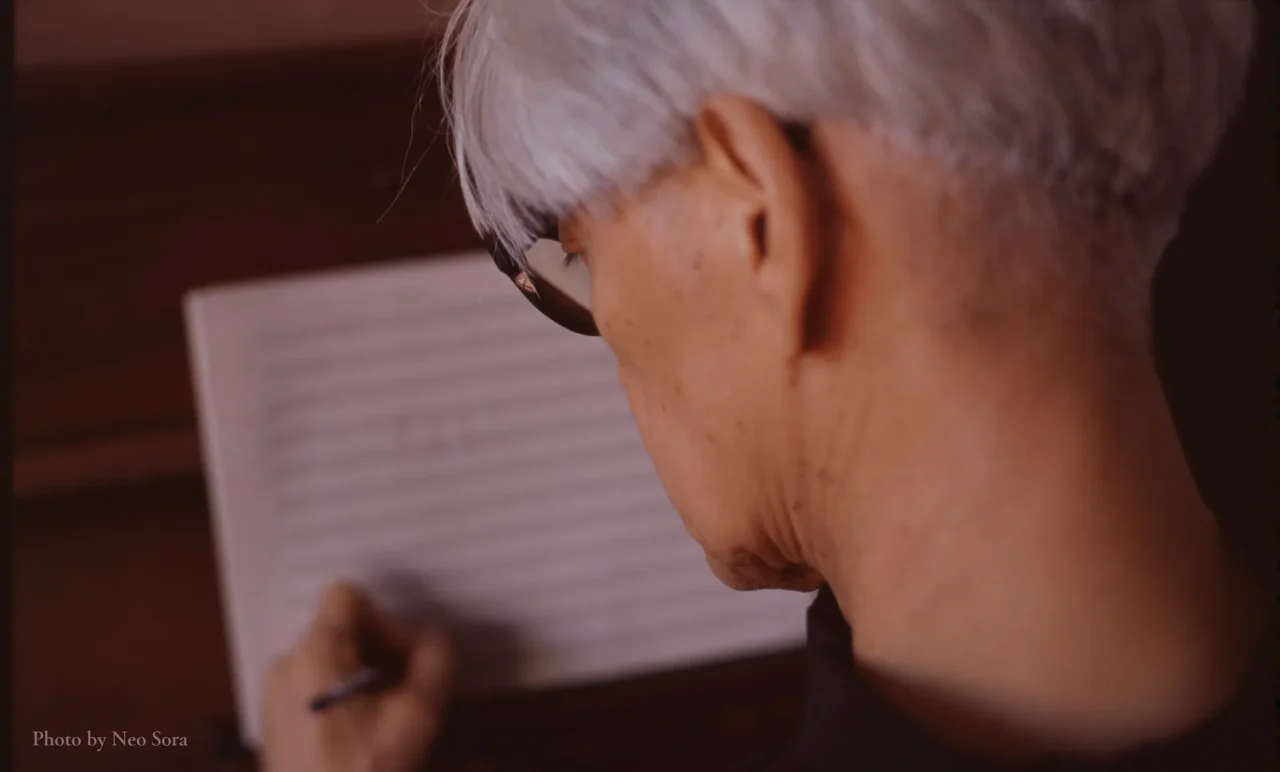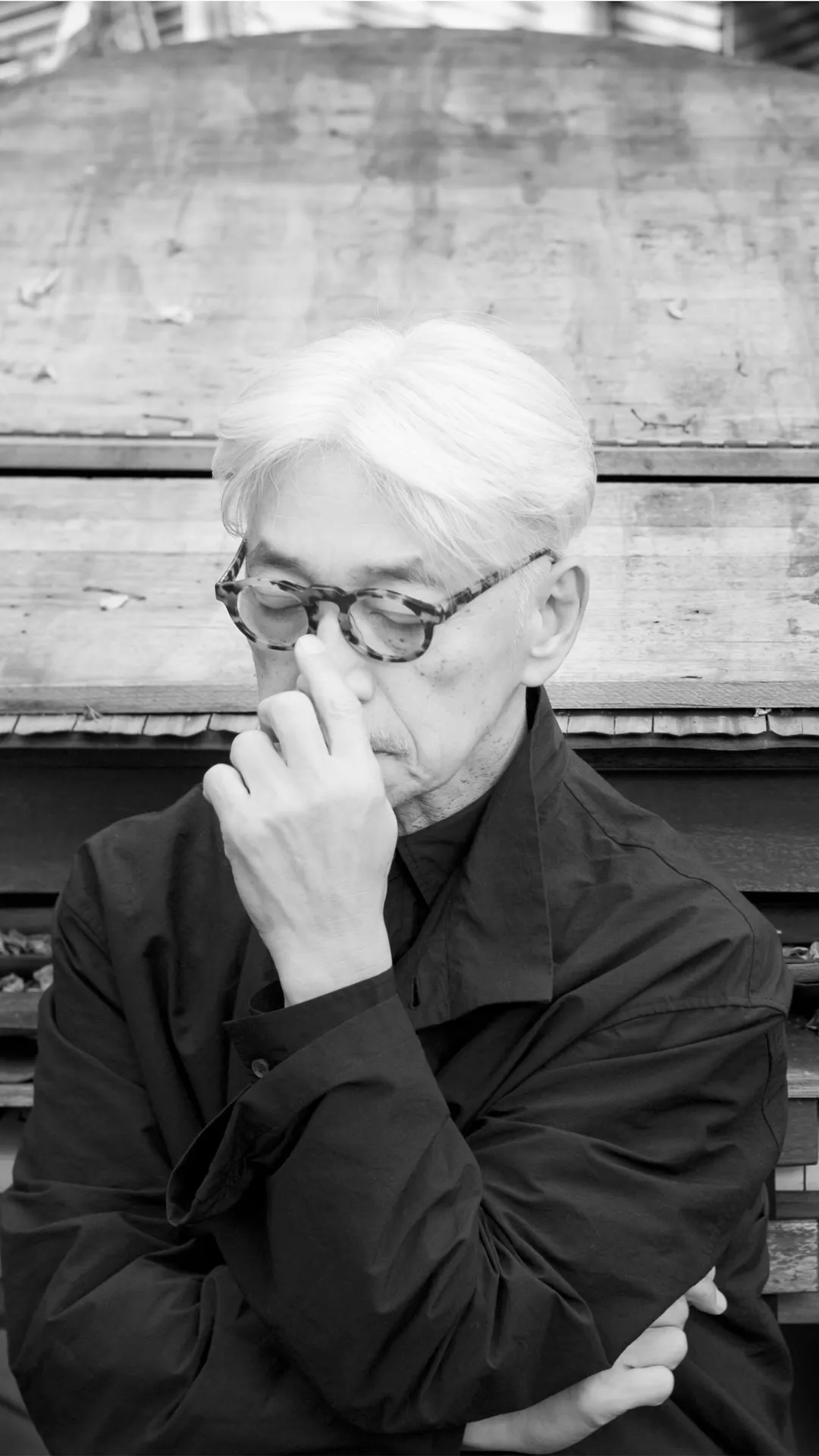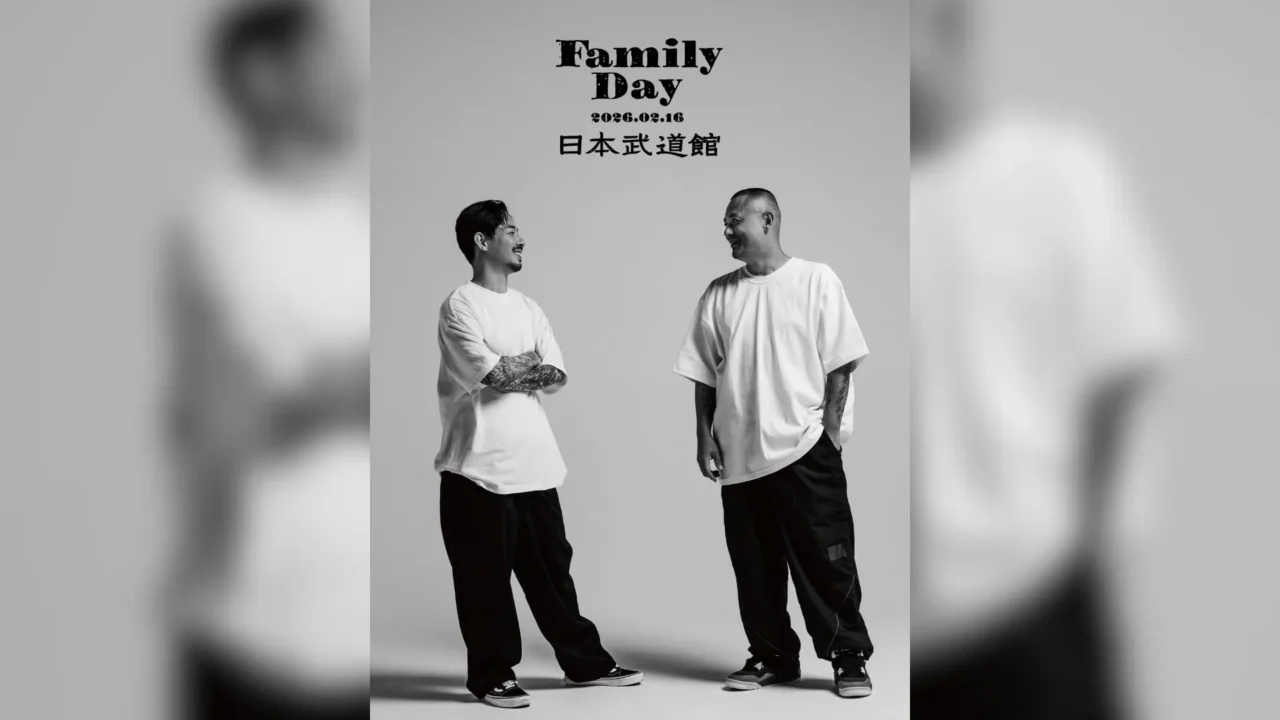Ryuichi Sakamoto is gone, and the months have quietly turned. Now his final three and a half years, preserved in his private journals, take shape in the film ”Ryuichi Sakamoto: Diaries”, opening Friday, November 28. The project expands on the NHK Special, a documentary by Japan’s public broadcaster that aired roughly a year after his passing. Directed by Kensho Omori, who also led the original broadcast, the film asks a piercing question: “How did he face the end of his life, and what did he hope to leave behind?”
INDEX

Kensho Omori was born in 1993 in Tokyo. He joined NHK in 2016 and works as a director in the News and Social Programs Department. He has produced documentaries for NHK Special and Close-Up Gendai, focusing on themes such as war, culture, and the arts. While actively engaged in news production, he also explores a visual style that balances documentary rigor with poetic sensibility.
Omori directed the NHK Special “Last Days Ryuichi Sakamoto” (2024), which earned numerous international awards, including the Rose d’Or (Best in Arts), the Special Award from the President of the Italian Republic, the Italian Award (Television and Performing Arts category), the International Emmy (Best Arts Program), and the Galaxy Encouragement Award. He has also worked on other NHK Specials, such as “Yukio Mishima: 50 Years Since His “Theory of Youth” (2020).
“Ryuichi Sakamoto: Diaries” is Omori’s feature film directorial debut, produced while he was at NHK Enterprises.
Turning Ryuichi Sakamoto’s Life and Private Journals into Cinema
The film presents both Ryuichi Sakamoto’s life and his private moments during his final years, including his journals. It inevitably has to touch on sensitive aspects, such as his illness, death, and the family and friends he left behind.
Omori: Yes. I approached the project using all the experience I’ve gained as a director, striving to remain objective while doing everything possible to avoid hurting anyone. Over the course of eight months, we had repeated conversations with Sakamoto’s family, and they generously provided private materials, including his journals, photographs, and notes saved on his smartphone.

The NHK Special focused primarily on Sakamoto’s daily life in his final years, but the film seems to add a broader perspective on his entire life and musical career.
Omori: That’s right. Above all, he is someone who left behind music, so the film traces his journey as a musician as well. I wanted to understand his musical roots, so we borrowed old materials from his family — documents that weren’t available during the NHK Special.
It’s a well-known story among fans that, as a middle school student, he became obsessed with the French composer Claude Debussy and even thought of himself as Debussy reborn. Seeing his actual diary from that time was surprising—the signature reads “claude.”
Omori: He was only fifteen back then. Even in that diary, he analytically discusses Debussy’s piece “Nuages” and comments on harmonic progressions. It really shows how precocious he was.
In the NHK Special, “rain” appears as a recurring motif. In the film, we added symbolic elements such as “clouds,” representing his unfinished dreams, and “the moon,” symbolizing the boundary between life and death.
It’s incredible that diaries from so long ago were still preserved.
Omori: His family understood the importance of keeping them safe. Thanks to their careful preservation and the dedication of those around him, we were able to bring this film to life.























